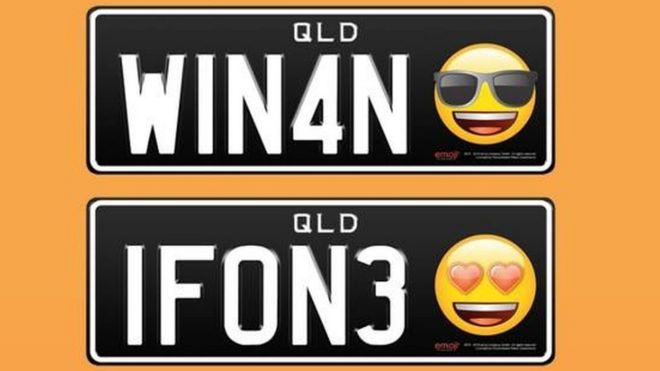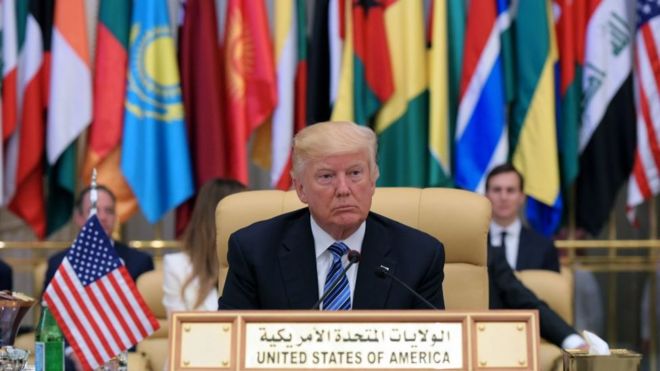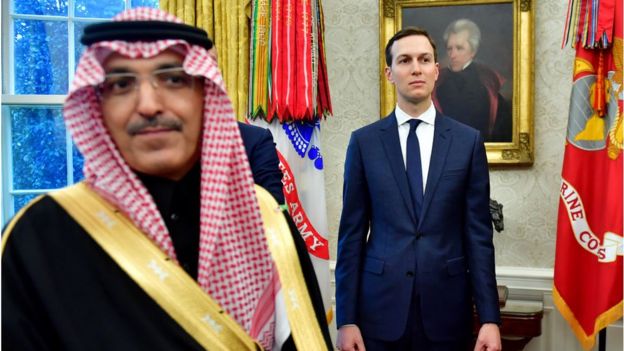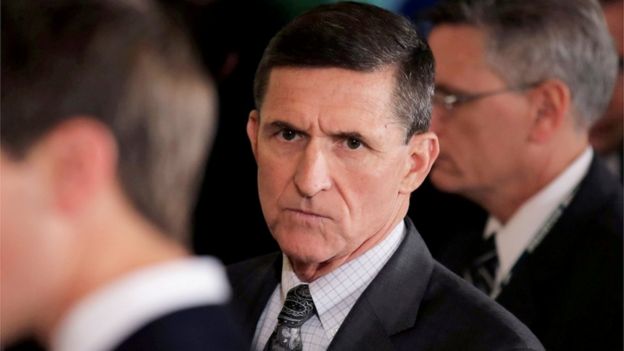Mr Modi's government is under pressure to respond to the attack in Pulwama
A suicide bomber killed more than 40 paramilitary police in Indian-administered Kashmir last week in what was the deadliest attack on Indian forces in the region for decades. Pakistan denies any role in the attack by militant group Jaish-e-Mohammad, which is based on its soil.
With Indian general elections around the corner, the government is under pressure to respond, or at least demonstrate that such actions are not without consequences. Dhruva Jaishankar weighs in with the options before India - diplomatic, economic and military.
What are the diplomatic options?
Political relations between India and Pakistan have been frozen for almost three years.
The de facto border between India and Pakistan, also known as Line of Control
Pakistan responded to these efforts with firing across the Line of Control separating the two sides, insisting on meeting with Kashmiri separatists in India, and arresting and sentencing to death an alleged Indian spy.
By July 2016, Delhi's patience dried up and its position on a number of issues hardened.
What is militant group Jaish-e-Mohammad?
How far might India go to 'punish' Pakistan?
Despite a new government in Pakistan under Imran Khan, a meeting between the two countries' foreign ministers at last year's UN General Assembly was cancelled. Normal diplomatic channels have, however, continued.
After the attack in Pulwama on Thursday, India has renewed its diplomatic efforts to make the case against what it says is Pakistan's state support for terrorism.
This builds upon many years of India condemning Pakistan in diplomatic pronouncements made with friendly countries. In India's joint statements with the US and others, they now name specific Pakistan-based terrorist groups such as JeM, Lashkar-e-Taiba and D-Company, a criminal syndicate led by the Pakistan-based Indian fugitive Dawood Ibrahim.
Mr Modi invited his Pakistani counterpart Nawaz Sharif to his inauguration in 2014
India has also linked Pakistan to the primary security challenges of its partners: for example, Japan's concerns about North Korea.
Such moves have sensitised others to India's concerns about Pakistan, facilitated intelligence cooperation on Pakistan-based terrorist groups and encouraged crackdowns on their financing in many countries. Delhi's continued efforts also increase acceptability for any economic or military costs that India might impose at a later date.
The challenge facing India is that other countries, however sympathetic, will continue to see value in retaining their ties with Pakistan.
Although the US has become increasingly frustrated with Pakistan "tolerating and encouraging groups which use violence against Pakistan's neighbours", China remains Pakistan's closest ally, as it has for decades.
It has provided Pakistan with nuclear and missile technology and equipment, conventional arms and - under the China-Pakistan Economic Corridor - billions of dollars of investment in strategic projects.
Saudi Arabia and the United Arab Emirates too have continuing economic and security ties with Pakistan, although both have also been warming their relations with India over the past few years.
India has already begun to crackdown on suspected militants in Kashmir
The US and European Union continue to offer Pakistan preferential trading benefits, in some cases resulting in lower tariffs on imports compared to India.
Some EU officials have privately blamed the United Kingdom for Brussels' accommodative approach towards Pakistan - and have suggested that they may take sterner measures after Brexit.
Can India hurt Pakistan economically?
The day after the Pulwama attack, India revoked Pakistan's Most Favoured Nation (MFN) trading status, raised customs duties to 200% and vowed to isolate it in the international community.
The absence of MFN will significantly raise customs duties on Pakistani exports to India, effectively resulting in unilateral Indian sanctions. Given that direct trade between the two countries is negligible, this move is largely symbolic.
In some ways, India has been implementing punitive measures against Pakistan for years. For instance, India has not played Pakistan in a bilateral Test cricket series since late 2007, in part because such a series would result in a financial windfall for the Pakistan Cricket Board.
The funerals driving youth to militancy
Injured baby refuels India pellet gun row
Other, more severe, measures such as abrogating the 1960 Indus Waters Treaty have been suggested.
Such a step would have significant costs, including eroding India's relations with other countries - China, Nepal, and Bangladesh - with which it has water-sharing arrangements.
India will also likely continue to apply diplomatic pressure to raise the costs of economic ties with Pakistan.
Pakistan PM Imran Khan has said Pakistan was not behind the Pulwama attack
It is expected to advocate adding Pakistan to the black list (which includes Iran and North Korea) of the Financial Action Task Force, an intergovernmental body that combats money laundering.
This would raise scrutiny on financial transactions involving Pakistan and effect its currency inflows, credit rating, stock market and banking sector.
However, China will likely resist such a move - it only dropped its opposition to Pakistan's "grey listing" last year in exchange for India's support for Beijing's vice presidency of the task force.
Other multilateral efforts may extend to leveraging India's position at various export control groups in which it recently acquired membership.
What are India's military options?
The biggest challenge for India is that Pakistan possesses a nuclear deterrent - including possibly one of the fastest growing nuclear arsenals - and a potent military.
For all the sabre-rattling in the Indian press and public, these are realities that the Indian leadership must keep in mind.
However, both Pakistan and India have explored options below the nuclear threshold.
In 1999, Pakistani forces made an incursion onto India's side of the de facto border (also know as the Line of Control) resulting in the limited Kargil conflict. On several occasions after that, India retaliated to Pakistani provocations with coordinated small-scale raids across the Line of Control. The 2016 attacks, in response to the Uri base attack, became widely known as "surgical strikes".
Other military options would be long-term in nature.
Indian efforts against cross-border infiltration from Pakistan have already benefited from new security technologies as well as intelligence partnerships with other countries.
Improvement in this area - such as buying unmanned aircraft and enhancing technical intelligence cooperation - would count as a major investment in countering cross-border terrorism from Pakistan.
Of course, these are only some of the many ways in which India might choose to respond. If recent history is any guide, we may witness something entirely unprecedented and unexpected.
Dhruva Jaishankar is Fellow in Foreign Policy Studies at Brookings India in Delhi and a Non-Resident Fellow with the Lowy Institute in Australia.











